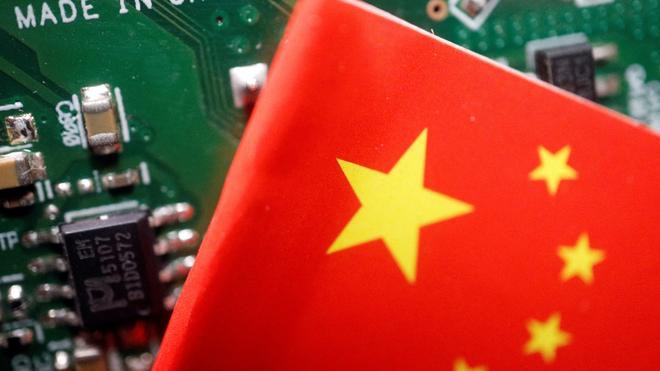
On Monday, the United States launched its third major crackdown in three years on China’s semiconductor industry, targeting 140 companies, including chip equipment maker Naura Technology Group. These measures, outlined by the Commerce Department, aim to limit China’s access to advanced semiconductor technologies. Below are the key actions being taken:
Chip Manufacturing Equipment
The U.S. is imposing new controls on equipment used to manufacture advanced-node integrated circuits. This includes tools for etching, deposition, lithography, ion implantation, annealing, metrology, inspection, and cleaning.
• U.S. companies like Lam Research, KLA Corp, and Applied Materials could be impacted.
• Non-U.S. firms, such as ASM International (Netherlands), may also feel the effects.
Software Tools
New restrictions target software used in developing and producing advanced-node integrated circuits. This includes tools that enhance machine productivity or allow older equipment to produce advanced chips.
• Companies such as Siemens (parent of Mentor Graphics) could face challenges under these controls.
Memory Chips
A new rule restricts exports of high-bandwidth memory (HBM) used in AI chips, specifically HBM2 and higher.
• South Korea’s Samsung and SK Hynix, along with U.S.-based Micron Technology, produce this technology.
• Industry insiders expect Samsung to be most affected, as about 20% of its HBM chip sales are linked to China.
HBM is essential for large-scale AI training and inference and plays a critical role in advanced computing.
Entity List Expansion
The Commerce Department added 140 entities to its Entity List, which includes semiconductor fabrication plants, toolmakers, and investment firms accused of advancing China’s chip ambitions in ways that pose national security risks.
• New additions include Chinese private equity firm Wise Road Capital, tech company Wingtech Technology Co, and JAC Capital.
• Companies on the Entity List typically face license denials for U.S. exports.
Foreign Direct Product Rule (FDPR)
The FDPR is being expanded to extend U.S. export controls over chipmaking equipment from U.S., Japanese, and Dutch manufacturers, even if the equipment is made outside the U.S.
• Equipment made in countries like Israel, Malaysia, Singapore, South Korea, and Taiwan will be subject to this rule, while Japan and the Netherlands are exempt.
• The rule targets 16 key companies on the Entity List deemed critical to China’s advanced chip ambitions.
• It also reduces the U.S. content threshold that triggers export controls, enabling tighter regulation of foreign products containing U.S. chips.
These measures reflect the U.S.‘s continued effort to limit China’s access to advanced semiconductor technologies and safeguard national security interests.
